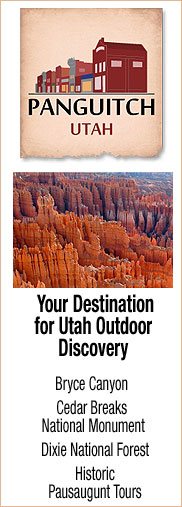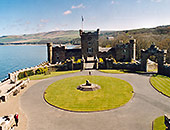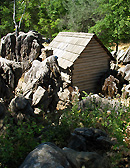 |
 |
|
 |

|
At An Unnamed
Hotel on An Unnamed Border Crossing
Story & Photos by Richard Frisbie My wakeup call came too early. It took awhile to figure out the shower. Modern plumbing, circa 1960s, was designed to confuse as much as look sleek and amorphously new. Then there was only a packet of bath salts, no shampoo or conditioner, or even a bar of soap not already in the sink. I washed guy-style, hair and all with the hand soap, glad, at least, to be clean of the filth traveling at 35,000 feet can leave. It was still too early.
The day was clear, with a magical horizontal light that gives even no-longer-necessary villages a reason for hope. I walked out into the morning along a roundabout of abandoned commercial buildings, dead plants still visible in the remaining windows. There were border stations nearby; both countries had impressive structures flanking the once-busy crossing. They were protected by sleepy-looking policemen in patrol cars parked to take full advantage of the rising sun’s warmth. Later, as the day heated up, they would move to the shade. The Art Deco bas-relief entrance still looked new with promise, but the peeling paint on the building’s façade told a different story. An overgrown lawn wreathed the hardiest of roses still blooming in a circular weed bed in the neglected yard. The open-border policies left no reason to care for them.
In the public park next door the water sprinklers, necessary in this arid region, wetted a green manicured lawn and crumbling marble walkways indiscriminately. Here the roses also bloomed, but vigorously, from the care an unseen gardener lavished on this perfect gem in the shadow of an abandoned border crossing. This flanked a dirty glass building built to display the mighty train engine it now entombed. The body of a bird, broken against the glass, lay amongst the litter on the floor of the graffiti sprayed mausoleum.
It was a moth-balled border crossing, with closed restaurants and hotels, their windows a parched desert of abandoned houseplants, with the few open shops selling liquor, religious knickknacks and lottery tickets; all the essentials for a dying community. It was a village of lost purpose, its economic engine so defunct it should be in the glass display in the park. It reminded me of the string of castles and hilltop fortresses, now lying in ruins, that once defended this ancient border. They are also the unnecessary remains of a more prosperous time.
In such hardship lie the seeds of opportunity. The whole place looked as if a clean-up crew could have it sparkling as new should the border become necessary again. If either country collapses under their weight of debt, or – God forbid – if the entire European Union collapses, a return to the old pre-Euro days would have this village open and prospering in no time. Until then, I rolled out the sidewalks as I walked the empty, dusty streets, and rolled them back up as I returned. Until, finally, it was late enough to begin the new
day. |
|
|
| ||||
This site is designed and maintained by WYNK Marketing. Send all technical issues to: support@wynkmarketing.com

|




















